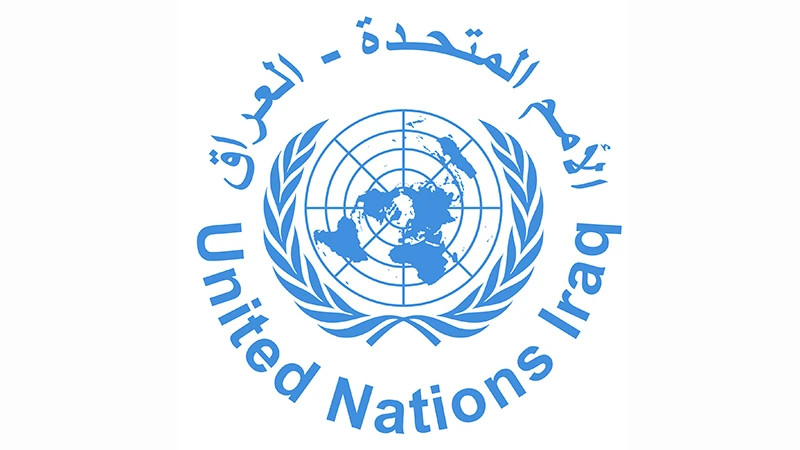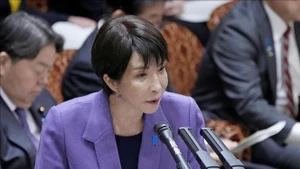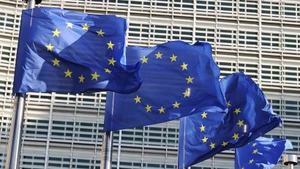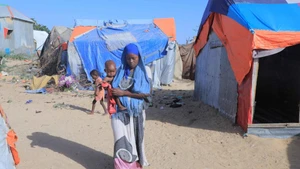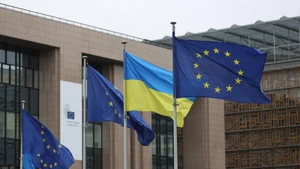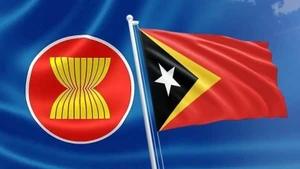The United Nations Security Council unanimously passed a Resolution to end UNAMI's mission at the end of 2025, following more than 20 years of the mission operating in Iraq.
In early May, in a letter to the United Nations, Iraqi Prime Minister Mohammed Shia' al-Sudani called for the United Nations Assistance Mission for Iraq (UNAMI) to be closed.
Al-Sudani said UNAMI had overcome "great and varied challenges" and that "the grounds for having a political mission in Iraq" no longer exist.
Established in 2003 under a Security Council Resolution with the mission of helping Iraq restore stability, UNAMI is responsible for supporting the development of institutions, promoting dialogue, overseeing elections, and many other issues.
The mission has about 700 staff, with tasks including advising the government on political dialogue and reconciliation, as well as helping with elections and security sector reform.
With the Resolution that the Security Council just passed, UNAMI's mission mandate was extended for “a final 19-month period until 31 December 2025.
The United Nations Security Council unanimously passed a Resolution to end UNAMI's mission at the end of 2025, following more than 20 years of the mission operating in Iraq.
Support for the process of transforming the role of the United Nations in Iraq was expressed by Russia, China, Britain, and France. After initial caution, the remaining permanent member of the UN Security Council, the US, drafted the resolution. The US representative to the UN emphasised that Iraq has changed significantly in recent years and UNAMI's mission needs to be readjusted to promote a safe, stable, and sovereign Iraq.
In the recently approved plan to end the UNAMI mission, the Security Council continues to affirm its support for Baghdad's relentless efforts to stabilise the situation in the country, including the fight against the self-proclaimed Islamic State (IS) organisation and other extremist groups.
In the context of Iraq's desire to narrow the activities of the US-led military coalition against IS, on the grounds that Iraqi security forces are capable of dealing with remaining jihadist groups in the country, the resolution also expressed support for Baghdad's efforts to repatriate Iraqis who were displaced by instability, promote anti-corruption reforms, respect and protect human rights, provide essential services to the people, create jobs and diversify the economy, and promote the resolution of problems between Iraq and other countries.
More than anyone else, Iraq welcomed the new resolution of the Security Council and voiced its appreciation for the active role of UNAMI and United Nations agencies in Iraq over the past two decades. The Iraqi Government spokesman affirmed that the plan to "close" UNAMI reflects progress and stability in the Middle Eastern country. However, challenges still exist.
In fact, in the strategic assessment of Iraq, in addition to the Middle Eastern country's remarkable achievements, experts have noted that Iraq's stability is still threatened by the fragility of its institutions, the danger of the risk of increased armed groups, and the possibility of other forms of terrorism and violent extremism.
The Iraqi Government believes that, with a national effort, by bringing together political leaders, practical solutions will be implemented. Affirming that UNAMI is ending its mission in the Middle East country because it is no longer suitable, Iraq emphasised its desire to continue to strengthen cooperation with UN organisations.
With the proposition to end UNAMI's mission while pledging to remain a sustainable partner with the largest multilateral organisation on the planet and the United Nations' development programs, Iraq affirmed its efforts to consolidate and enhance its national prestige by directly facing domestic challenges and actively expanding partnerships with many countries around the world.
After 20 years of change, the time has come for Iraq to take full responsibility for the political destiny of its sovereign state and strive to contribute to the stability and development of the region.
